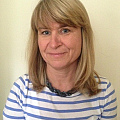Childhood cancer: research in the fight against treatment side effects
Advances over the past 30 years mean that the majority of young people with cancer now survive. However, winning this battle has been a bitter sweet pill, as many survivors previously encountered early deaths further down the line due to toxic side effects of their original treatment.
Research published earlier this year in the New England Journal of Medicine, shows a decline in late mortality among 5-year survivors of childhood cancer, suggesting that this trend is starting to change. In part this is due to research focused on better targeting cancer cells, reducing medication side effects, and improving quality of life for patients – where our work fits in.
The children’s cancer survival rate has improved and early deaths later in life due to chemotherapy are in decline
All types of childhood cancer are relatively uncommon, with around 1 in 500 children developing cancer by the age of 14. Of these, leukaemia is the most common, affecting around 30% of our patients. The acute lymphoblastic leukaemia (ALL) study is one of the landmark trials which really changed outcomes for children with ALL. The study, which involved patients in Manchester and other sites across the UK, enabled the intensity of a young person’s treatment to be tailored to their individual needs, reducing side effects for those with less aggressive forms of the condition.
Moving on to those cancers that are rarer; we also treat children and adolescents with kidney and bone cancers. Affecting just 1 in 10,000 young people under 15 years, Wilms’ tumour is the most common form of kidney cancer affecting children. This condition is usually identified before the age of seven, and symptoms can include a swollen abdomen (the tumours can be quite large), loss of appetite/weight and feeling sick.
All children’s cancer is uncommon, but we’re also researching treatments for the rarer types
Until recently, the standard treatment for higher stage Wilms’ tumour consisted of nephrectomy (surgical removal of the kidney) and chemotherapy with vincristine, actinomycin D and doxorubicin. Although this treatment has a cure rate of 90 per cent, doctors learnt over time that doxorubicin can cause irreversible damage to the heart and so were keen to explore treatment dropping the doxorubicin.
Last year, The Lancet published results of the study which again involved Manchester patients and showed that removing doxorubicin from the treatment cocktail resulted in high five-year survival in patients with stage II and III intermediate-risk tumours. This suggests that treatment with vincristine and actinomycin D may be sufficient and reduce the risk of side effects in this patient group. This is now the standard therapy for these patients at Royal Manchester Children’s Hospital (RMCH).
In collaboration with the University of Birmingham and Cancer Research UK, I am also leading an international study, which is available to patients at RMCH, into the treatment of newly diagnosed Ewing’s sarcoma. Ewing sarcoma is a rare bone cancer, which affects around 2 in 1,000,000 people and is most common in teenagers. Ewing’s sarcoma usually starts in the pelvis, thigh or shin, but can also affect soft tissues. .
Patient involvement in the design of studies as well as participation helps us to improve outcomes
The study, which has been designed using input from an EU consortium of patients, aims to compare the different chemotherapy regimens to determine which is more effective and/or has fewer side effects.
As an Experimental Cancer Medicines Centre- Paediatric Network, one of five centres awarded accreditation of Innovative Treatments for Childhood Cancers (ITCC), and support from the NIHR, Manchester is also an attractive place to undertake early phase paediatric cancer trials.
A large number of children take part in clinical research in Manchester. Our aspiration is to provide all families with cutting edge research as a choice, alongside their other treatment options. We are hopeful that plans to bring the UK’s first proton beam therapy service to Manchester, being led by The Christie, will open up more trials for our patients and, in time will, lead to better outcomes for children across the world.




